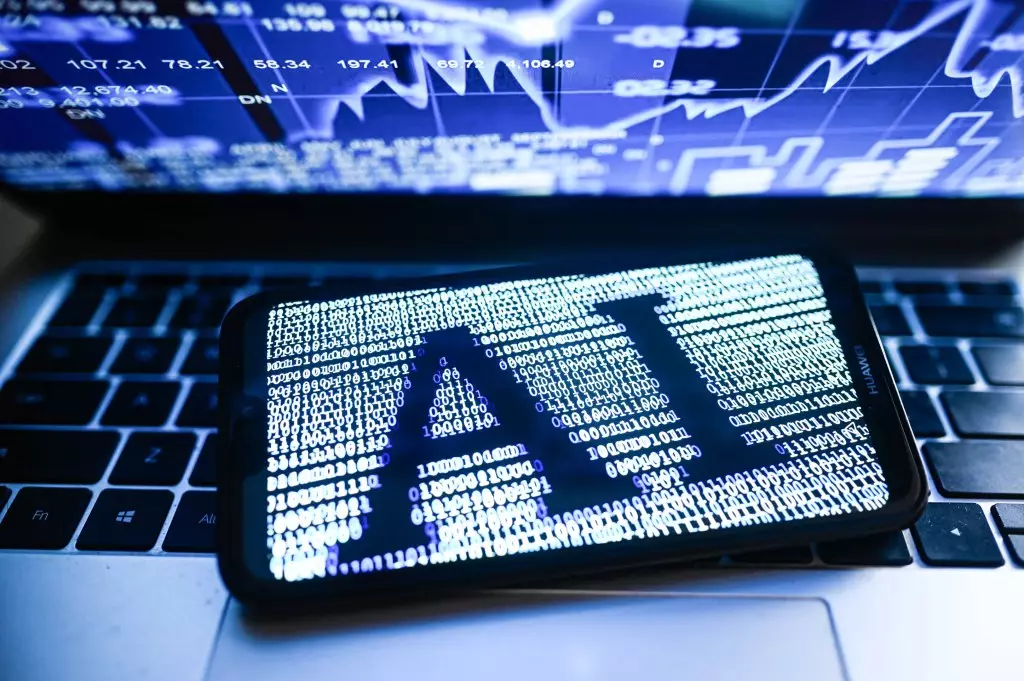In an era where artificial intelligence stands on the brink of reshaping entire industries, the Motion Picture Association (MPA) has ventured to express its concerns and aspirations regarding the intersection of AI and copyright laws. With technology giants like OpenAI and Google advocating for fewer restrictions on the resources needed to train their AI models, the threat to the traditional copyright system has never been more palpable. Their pleas frame the discourse as a national security issue, suggesting that any hindrances to their growth would risk America falling behind competitors, primarily China, in the race for technological supremacy.
However, this argument raises critical philosophical questions about the very nature of creativity. By arguing for fewer constraints, these tech behemoths fleetingly overlook the lifeblood of the creative industries—original expression. The MPA’s recent comment to the White House encapsulates this sentiment, emphasizing the need for a balanced coexistence between AI advancements and copyright laws that protect and incentivize creative output. This claim is not just about safeguarding the interests of a few corporations; it’s about protecting the very fabric of creativity that has historically thrived in environments where original works are respected and valued.
AI: A Double-Edged Sword
Artificial intelligence has remarkable potential to revolutionize creative processes. It can enhance storytelling, create stunning visual effects, and even generate compelling narratives. Yet, with this power comes the ethical responsibility to ensure that its application doesn’t erode the rights of those whose works serve as the foundation for AI training. The key phrases here are “enhance” and “original expression.” If AI is merely repackaging existing content instead of fostering genuine creativity, we risk devolving into a culture of imitation rather than innovation.
Many creatives, including some of Hollywood’s elite, have voiced their apprehensions about AI’s unchecked expansion in their domains. With lawsuits cropping up against AI companies for allegedly siphoning content without compensation, it becomes glaringly obvious that the balance tips toward exploitation unless properly regulated. The stakes are high, not only for individuals within the industry but also for future generations of artists who may find themselves in an increasingly AI-dominated creative landscape.
The MPA’s Stance: A Measured Approach
The MPA’s position walks a surprisingly pragmatic line. While it affirms the urgency to embrace AI’s potential, it also stresses that captive ownership of rights is paramount. In their view, robust copyright laws should serve as the backbone of innovation, fostering an ecosystem where both artists and technologists can thrive. Leading figures, such as MPA President Charlie Rivkin, have echoed these sentiments, aiming for the U.S. to remain at the forefront of both filmmaking and AI.
This dual ambition should not be dismissed lightly; it reflects a nuanced understanding of the landscape where both sectors can benefit from one another. However, the MPA’s restrained voice has drawn ire from Hollywood factions advocating for a more aggressive stance against what they see as predatory practices by major AI companies. This friction indicates a looming schism within the industry itself, as the fight for intellectual property rights assembles powerful allies on both sides.
The Economic Argument: A Copyright Culture Worth Protecting
One of the MPA’s most potent arguments lies in the economic implications of a robust copyright system. With copyright industries contributing over $2 trillion to the U.S. GDP, it’s clear that the stakes extend well beyond the realm of artistry; they delve into national economic stability. Moreover, as the MPA highlighted, U.S. copyright products, particularly in the audiovisual sector, have outperformed several other major industries, solidifying the argument that creativity is not just a luxury but a vital economic driver.
Critics argue, however, that while the economic rationale is compelling, it shouldn’t serve as a shield for corporate interests seeking to prioritize profit over protection. The idea that Google’s massive valuation or OpenAI’s rising successes should justify bending the rules of copyright law strikes many as morally bankrupt. It’s not just about locking in profits for powerful entities but ensuring a sustainable framework that fosters creativity for everyone.
Challenging the Status Quo
While the MPA’s communications are measured, they must also recognize that staying stagnant in the face of rapid technological changes could render them irrelevant. A robust conversation about intellectual property must not shy away from asking difficult questions or challenging existing paradigms. If creative and technological sectors cannot find common ground, we risk witnessing a race to the bottom where the only winners are those who eschew the rights of creators in favor of machine-generated outputs.
The call for regulatory clarity regarding AI’s relationship with copyright isn’t merely about protecting economic stakes—it’s about safeguarding the cultural landscape that enriches societies. Therefore, it’s vital for the voices of artists, technologists, and policymakers to converge in a discussion that could redefine the terms of engagement for all parties involved. As we continue to navigate this uncharted territory, the stakes are higher than ever, and it is our collective responsibility to ensure that the evolution of AI fosters creativity rather than stifling it in the pursuit of expediency.


Leave a Reply